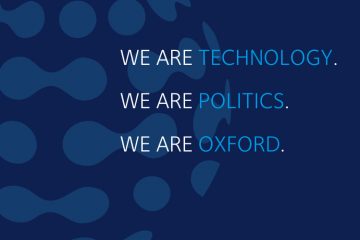
Pro-Innovation and Pro-Ethics? Threading the Needle in UK AI Policy
Throughout the recent political turmoil in Downing Street, the civil service has continued to develop policy on artificial intelligence, including by developing its 2021 National AI Strategy through a more detailed policy paper (titled ‘Establishing a pro-innovation approach to regulating AI’) that gives further guidance about the intended approach. This policy paper is of domestic and international importance, as the new Prime Minister Rishi Sunak looks to capitalise on the UK’s AI potential at a time when governments worldwide grapple with how to regulate the emerging technology. Notably, the tone of the paper, as introduced by then-ministers Nadine Dorres and Kwasi Kwarteng, emphasises a ‘proportionate, light-touch and forward-looking’ attitude that looks to ‘unleash growth and innovation’ in the field. The framing of an …

Bridging State Responsibility and Opportunities as African Countries Join in the Digital Silk Road
In 2015 China launched the Digital Silk Road (DSR hereafter). The DSR is an essential part of the One Belt, One Road (BRI) strategy with significant domestic and foreign policy objectives. China has made enormous investments that have allowed it to achieve rapid technological advancement and economic growth. As of 2021, Chinese firms were three of the world’s largest technology companies by revenue. According to the World Intellectual Property Organisation (WIPO), in 2020 China reported 1.5 million patent applications, 2.5 times more than the second leading country, the United States. The DSR is part of China’s plan to spread its technical and proprietary knowledge by building telecommunications, data, and financial infrastructure in countries participating in the BRI. The Nigerian digital …

What China’s Falling Rocket Tells Us About the Increasing Orbital Space Debris Problem
In early May, the international community held its breath as China’s Long March 5B rocket plummeted uncontrollably back to earth. While the debris landed safely in the Indian Ocean, silencing concerns about a potentially dangerous impact, the increasing frequency of uncontrolled re-entries highlights the importance of state responsibility in safely disposing of space debris. This is not the first time China neglected to dispose properly of its orbital debris. A similar incident occurred this time last year when an out-of-control Chinese rocket–and the largest human-made object ever to return to earth uncontrolled from space–dropped debris on Cote d’Ivoire and in the Atlantic Ocean. While most debris disintegrates upon atmospheric re-entry, some components with higher melting points can persist and penetrate …

Why We Need to Step up to the Regulatory Challenge of the Sharing Economy and New Financial Instruments
Throughout history, technological advances have put politicians and regulators in a difficult balancing act between embracing the benefits of the transformational changes brought by new technologies, versus providing reassurance to citizens that change can be managed and stability maintained. Take for example the advent of the self-propelled vehicles (cars), which was a response to 19th century society’s need for a quicker way to transport people and goods across the country. Concerned with the safety of the public and the potential harms that could result from the new technology, the British Parliament responded with The Locomotive Act of 1865. This included a maximum speed limit of 2 miles per hour and required a person carrying a red flag to walk at …

From Oil Wells to Blockchains: Revolution or Reality?
Blockchain is an emerging technology that has drawn considerable interest from start-ups, technology developers, financial institutions, governments, and think-tanks. They all identify blockchains as having tremendous potential to bring significant benefits. This technology acts as an electronic ledger and allow transaction to be carried out between parties without interference by third parties like banks. Energy supply firms are also increasingly looking the potential of blockchain technology. Blockchain has emerged at just the right time. Other revolutions within the energy sector – the decentralization of the electrical systems, the development of autonomous electric vehicles and the gradual deregulation of the energy industry – are opening the door to blockchain. By combining blockchain with new paradigms, new consumption models will emerge and …

Cybersecurity is forcing a rethink of strategic autonomy
Just a few days ago, European Commission President Jean-Claude Juncker presented his 2018 State of the Union speech with the title “The Hour of European Sovereignty”. In the speech, he argues that the time has come for the EU “to become more autonomous and live up to our global responsibilities”. The question is how to make this ambition become a reality, how to achieve strategic autonomy. Especially in the context of cybersecurity, strategic autonomy is becoming a widely discussed topic. The growing interest in the link between “digital” or “cyber” and strategic autonomy is driven by the increased dependency on transformative digital technologies throughout the economy and society, combined with the explosive growth of cyberthreats and incidents. The political context …

Anonymity in the Age of Ubiquitous Facial Recognition
Facial Recognition Technology will have a severe impact on society in the future, resulting in a loss of anonymity for everybody. The Russian artist Egor Tsvetkov demonstrated with an experiment that it is already possible today to identify random people on the metro by just using their photos and a facial recognition app. Currently this was done by processing images afterwards with face search and augmenting it with human verification, but it is not difficult to imagine every cell phone or connected car being able to identify anyone’s face and perform a search on the web within less than a second. Instead of classical fears of big brother’s mass surveillance, there might be technology ready for peer-to-peer mass surveillance. The …

The Future of Capitalism: Technological Progress, Block Chains and Karl Marx
As Joseph Schumpeter already pointed out in 1942’s Capitalism, Socialism, and Democracy “dealing with capitalism, we are dealing with an evolutionary process.” The question is in what direction is this process heading? Is the rising power and capital accumulation of FAMGA (Facebook, Apple, Microsoft, Google, Amazon) together with advances in block chains and artificial intelligence leading to the concentration of wealth in ever fewer hands, obsolescence of manual labour and even the destruction of capitalism, as Karl Marx believed in the 19th century? Or, do technological progress and innovation lead to reduced inequality and higher prosperity? Before talking about the future, its key to review the past of capitalism. Technological progress during the Industrial Revolution of the late 18th and early …









